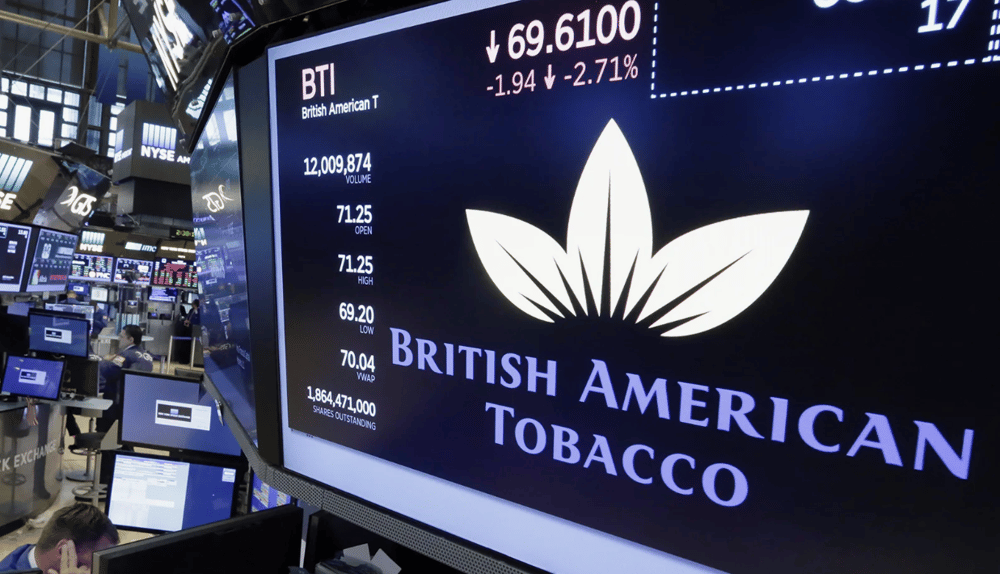British American Tobacco Sells $1.5 Billion Stake in Indian FMCG Giant ITC
British American Tobacco $BATS.L, a leading global tobacco company, has recently completed a significant divestment by selling a substantial stake in India’s diversified consumer goods conglomerate ITC Limited $ITC.NS. The transaction, valued at approximately $1.5 billion, reflects BAT’s strategic portfolio management amid evolving global market dynamics and its ongoing focus on core tobacco operations. This move also underscores the growing significance of Indian consumer markets for multinational companies.
Details and Implications of BAT’s Divestment in ITC
According to regulatory filings reviewed by Reuters, British American Tobacco sold 313 million shares of ITC at a price of 413 Indian Rupees per share, representing roughly 2.5% of ITC’s total equity. This sale exceeded BAT’s initial target of up to 290 million shares, boosting the deal’s total value beyond the initially estimated $1.4 billion.
The partial exit from ITC, which operates across multiple sectors including tobacco, FMCG, hotels, and agribusiness, signals BAT’s intent to optimize its investment portfolio amid global challenges in the tobacco industry. Despite ITC’s broad footprint in the Indian market, BAT’s stake sale may indicate a refocusing on more core or higher-margin business lines.
This divestment also comes amid a period of regulatory scrutiny and shifting consumer preferences in tobacco markets worldwide, compelling companies like BAT to reconsider their exposure and capital allocation strategies. For ITC, the transaction highlights continued investor interest and liquidity in one of India’s most prominent publicly traded companies, valued for its diversified revenue streams.

Key Facts
British American Tobacco sold 313 million ITC shares at ₹413 each
Sale accounts for 2.5% of ITC’s total share capital
Transaction valued at approximately $1.5 billion, surpassing initial estimates
ITC Limited operates in tobacco, FMCG, hotels, and agribusiness sectors
BAT exceeded its planned sale target of 290 million shares
Transaction reflects strategic portfolio adjustment amid global tobacco market shifts
Market Response and Strategic Considerations
The stock market responded positively to the announcement, with ITC shares stabilizing after the sale, reflecting confidence in the company’s diversified business model despite BAT’s reduced stake. Analysts noted that the partial exit by BAT could unlock further liquidity in ITC shares, potentially attracting new institutional investors.
From a strategic standpoint, BAT’s move aligns with global tobacco industry trends where companies increasingly divest non-core assets to fund investments in reduced-risk products and digital transformation initiatives. The Indian market remains attractive due to its growing consumer base, but regulatory pressures and shifting consumption patterns require agility.
Industry experts also highlighted that BAT’s decision to sell a larger portion than initially planned might be driven by the need to reallocate capital towards higher-growth opportunities or deleverage balance sheets amid uncertain macroeconomic conditions.

Key Takeaways
BAT’s stake sale in ITC exceeded expectations, signaling decisiveness in portfolio rebalancing.
ITC maintains strong market positioning in India despite BAT’s partial divestment.
The transaction may enhance ITC’s stock liquidity and broaden its investor base.
BAT focuses on core tobacco and emerging product segments amid regulatory challenges.
Indian consumer market remains critical but requires strategic investment adjustments.
Significance of BAT’s $1.5 Billion Stake Sale in ITC for Global and Indian Markets
British American Tobacco’s divestment of a $1.5 billion stake in ITC underscores both the evolving landscape of the global tobacco sector and the importance of India’s diversified consumer markets. This transaction illustrates a strategic recalibration by BAT to prioritize core operations while capitalizing on favorable market conditions to monetize non-core holdings.
For ITC, the sale marks continued investor confidence and operational resilience, positioning the company well for future growth across its varied business segments. The deal also reflects broader market trends where multinational corporations actively manage stakes to adapt to regulatory, economic, and consumer shifts globally.















Comments